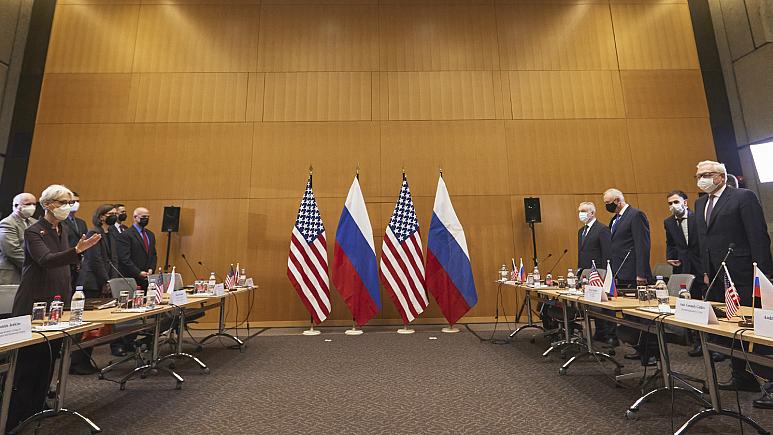Security talks with US ‘difficult’ but ‘concrete’, says Russian deputy MFA Ryabkov

Senior US and Russian officials launched the critical talks on rising tensions on Monday as part of their “Strategic Security Dialogue” on arms control and other broad issues kickstarted by presidents Joe Biden and Vladimir Putin during a June 2021 summit in the Swiss city.
The conversation, which lasted for more than seven hours, “was difficult, long [but] concrete, without any attempts to embellish anything,” Ryabkov said. “We got the impression that the American side took the Russian proposals very seriously."
The Kremlin has denied this but demanded that a Ukrainian membership of NATO be ruled out and that the alliance removes any offensive weaponry from countries in the region. Ryabkov reiterated the Russian demands remain unchanged following the meeting in Geneva.
“I don’t think you expect me saying otherwise than to confirm that this is one of the areas where we have a great difference of views with the US,” he told the gathered reporters.
“For us, it’s absolutely mandatory to make sure that Ukraine never — never ever — becomes a member of NATO,” Ryabkov insisted.
He also said that the Kremlin does not trust their counterparts in the West and that the government in Moscow requires a firm commitment.
“We are fed up with loose talk, half-promises, misinterpretation, different forms of negotiations behind close doors,” he went on.
“We need ironclad, waterproof, legally binding guarantees — not assurances, guarantees.”Ryabkov further insisted that any NATO expansion towards Russia would not benefit the “countries West of Russia”.
“If now NATO proceeds towards deployment of capabilities that are being developed very rapidly in the US and would possibly be introduced somewhere in Europe, it would require a military response by the Russian part, that is, a decision to counter these threats through means at our discretion,” he stated.
The talks in Geneva will be followed by Russia-NATO talks in Brussels and an OSCE meeting in Vienna over the course of the week. Both US and NATO officials stated that they did not expect any progress to be made at this stage.
“It’s very hard to see that happening when there’s an ongoing escalation, when Russia has a gun to the head of Ukraine with 100,000 troops near its borders, the possibility of doubling that on very short order,” US secretary of state Anthony Blinken told ABC on Sunday. NATO secretary-general Jens Stoltenberg also sought to play down expectations.
“I don’t think that we can expect that these meetings will solve all the issues," he told reporters in Brussels on Monday after talks with Olga Stefanishyna, Ukraine's deputy prime minister for European and Euro-Atlantic integration.
"What we are hoping for is that we can agree on a way forward, that we can agree on a series of meetings, that we can agree on a process.”
